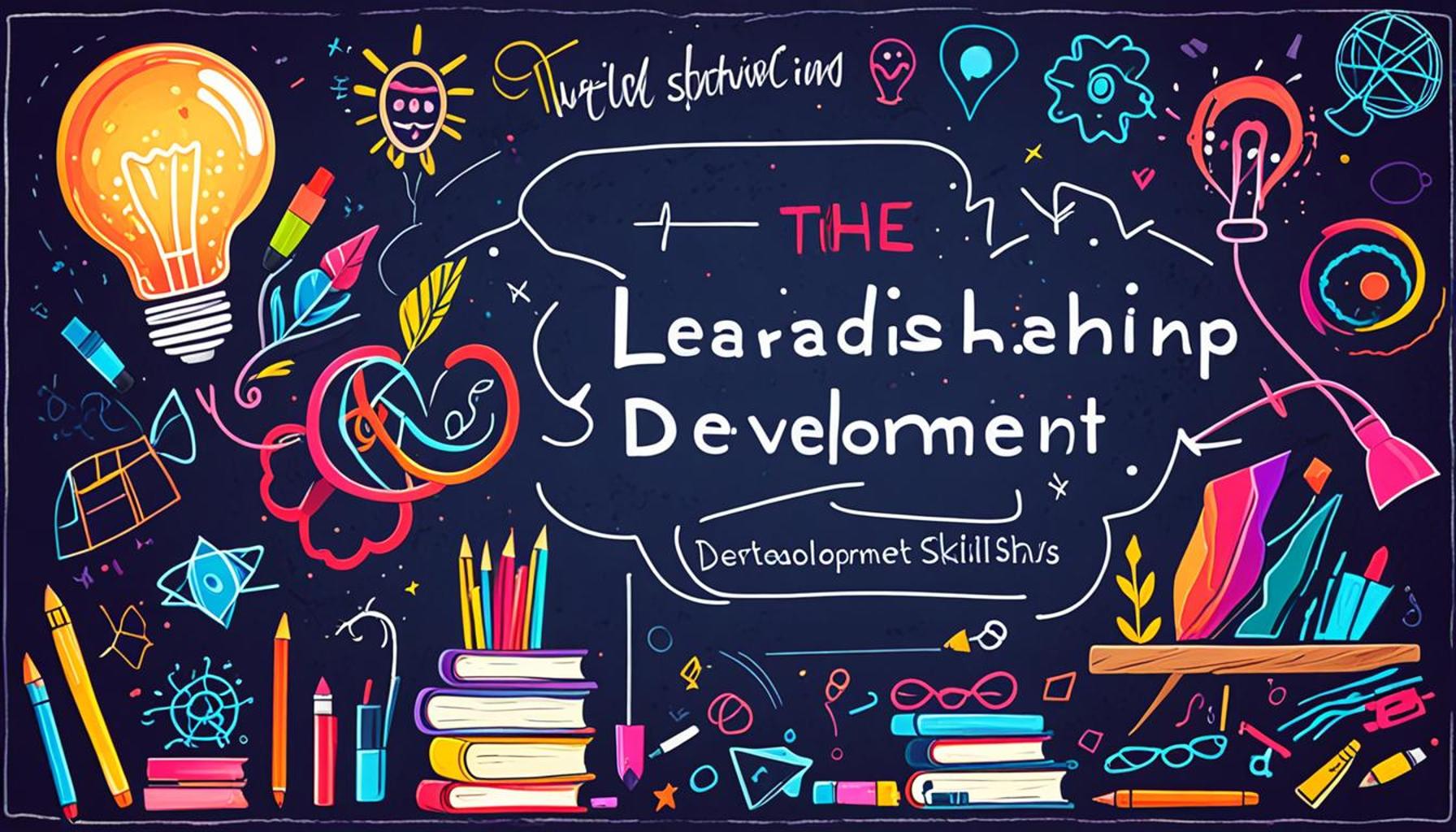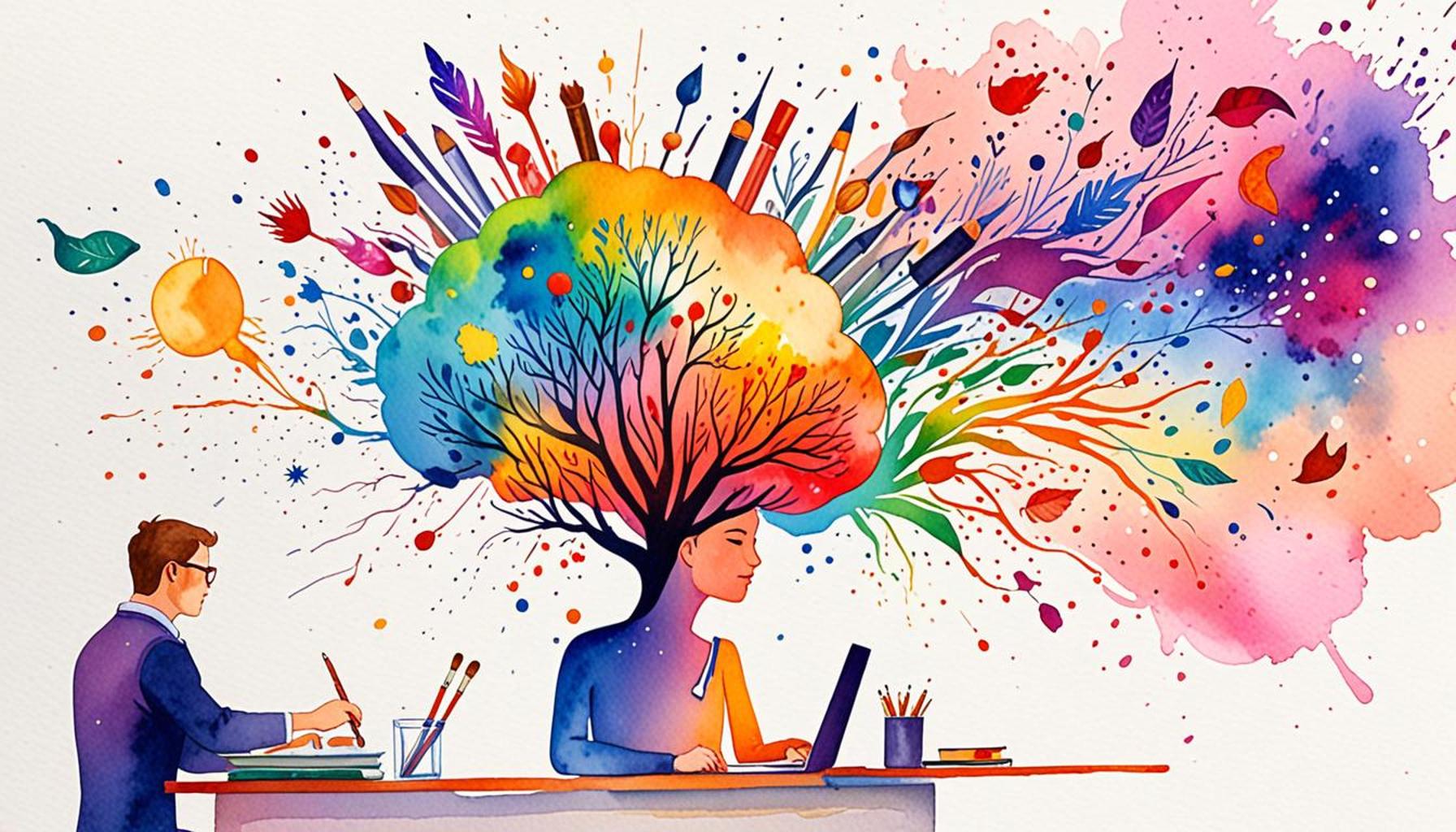The Relationship Between Continuous Learning and Leadership Skill Development

Understanding the Integral Role of Continuous Learning in Leadership
In the fast-paced landscape of today’s business environment, leaders face an unprecedented range of challenges that require not only experience but also a commitment to continuous learning. This concept has become a cornerstone for those in leadership roles, providing them with the agility necessary to thrive amid constant change and uncertainty.
Adaptability in Leadership
One of the primary advantages of a dedication to learning is adaptability. Leaders who regularly acquire new skills position themselves to respond quickly to shifts in market conditions, employee dynamics, and technological advancements. For instance, a leader in the Nigerian agricultural sector facing fluctuating market demands can leverage new agricultural technologies or methodologies learned through courses or workshops to better serve their community. By embracing knowledge, these leaders remain resilient, turning potential setbacks into opportunities for growth.
Driving Innovation Through Learning
Furthermore, innovation is stimulated through the pursuit of continuous education. In a diverse country like Nigeria, where the intersection of traditional practices and modern innovation is commonplace, leaders who invest in learning enhance their capacity for creative problem-solving. Consider the rise of Fintech in Nigeria; leaders in this space must consistently update their knowledge regarding regulatory changes and technological advancements. Through ongoing education, they can envision and implement innovative financial solutions that cater to the unique needs of the Nigerian populace.
Empowering Teams for Success
A focus on continuous learning not only benefits leaders individually but also fosters empowerment within their teams. By setting a precedent for professional development, leaders encourage their staff to pursue their growth. This cultivation of a learning culture makes employees feel valued and engaged, promoting loyalty and reducing turnover rates. For instance, organizations like Dangote Group emphasize the importance of staff development, offering training programs that align employees’ aspirations with organizational goals. Through these initiatives, the company builds a workforce that is not only skilled but also motivated to innovate and excel.
The Impact of a Learning Culture
Empirical evidence supports the idea that organizations prioritizing continuous learning experience numerous benefits. A vibrant learning culture leads to:
- Increased retention rates: Employees perceive a commitment to their development, resulting in higher job satisfaction.
- Enhanced performance: Skills learned translate directly into productivity improvements, as employees apply their newly acquired knowledge in their roles.
- Greater competitive advantage: Companies that embrace learning are better positioned to lead their industries, continuously adapting to market demands and setting trends.
In essence, the synergy between continuous learning and leadership skill development illustrates a vital principle: investing in knowledge is equivalent to investing in the future success of organizations. As leaders in Nigeria continue to navigate a diverse and ever-changing landscape, embracing the power of continuous learning will undoubtedly be a key factor in shaping effective and inspiring leadership for generations to come.
SEE ALSO: Click here to read another article
The Transformation of Leadership Skills Through Continuous Learning
As the complexities of the modern workplace evolve, the demand for effective leadership intensifies. It has become evident that continuous learning is not merely an option but a necessity for leaders aiming to strengthen their leadership skills. This dynamic relationship between learning and leadership development manifests in several key areas that significantly influence a leader’s effectiveness and the overall performance of their organization.
Cultivating Strategic Thinking
One of the most crucial aspects of leadership is strategic thinking. Leaders must possess the ability to evaluate complex situations and devise effective strategies for future challenges. Continuous learning equips leaders with diverse perspectives and analytical tools necessary for effective decision-making. A leader in Nigeria’s technology sector, for example, who actively engages in professional development resources, such as online courses and industry seminars, is better positioned to anticipate shifts in the tech landscape. This forward-thinking approach enables them to craft robust strategies that not only navigate current challenges but also exploit future opportunities.
Enhancing Communication Skills
Effective communication is another pillar of successful leadership. Through continuous learning, leaders can enhance their communication skills, a factor critical in conveying their vision, motivating teams, and building strong relationships. By participating in workshops on emotional intelligence or negotiation tactics, a leader can learn to articulate their thoughts clearly and empathetically. This can be particularly impactful in Nigeria’s multi-cultural environment, where leaders must navigate diverse perspectives and communicate effectively across various cultural contexts.
Developing Emotional Intelligence
Emotional intelligence (EI) is increasingly recognized as a vital skill for leaders. Continuous learning opportunities in this area help leaders sharpen their EI, enabling them to manage their emotions and understand the emotional drivers of their team members. This is essential in fostering an engaging workplace culture. For example, when a leader demonstrates empathy and effectively manages workplace tensions, they not only strengthen team dynamics but also boost overall morale. This creates an environment where team members feel heard and valued, ultimately enhancing productivity and collaboration.
The Ripple Effects of Learning on Organizational Culture
Leaders who commit to ongoing education contribute significantly to establishing a learning culture within their organizations. Such a culture promotes an environment where team members are encouraged to pursue knowledge and personal growth. As leaders invest in themselves, they set an example for their teams, inspiring employees to embrace continuous learning as well. Organizations that prioritize this culture often experience:
- Increased innovation: Employees become more comfortable experimenting and sharing new ideas.
- Stronger teamwork: A culture of learning fosters teamwork and collaboration, as employees become partners in growth.
- Higher employee engagement: Workers are more likely to remain engaged and motivated when they see opportunities for personal and professional development.
In summary, the commitment to continuous learning directly influences a leader’s ability to develop essential skills such as strategic thinking, communication, and emotional intelligence. In Nigeria’s diverse and rapidly evolving environment, the relationship between learning and leadership skill development paves the way for not only individual growth but also organizational success. This foundational aspect of leadership remains critical for those wishing to leave a lasting impact in their respective fields.
The Relationship Between Continuous Learning and Leadership Skill Development
In today’s rapidly evolving work environment, the need for effective leadership is greater than ever. Continuous learning enables leaders to adapt to new challenges, ensuring they remain relevant and effective in their roles. By engaging in ongoing education and skill enhancement, leaders can refine their decision-making abilities, thus driving greater organizational success.
One key aspect of the interplay between continuous learning and leadership development is the ability to embrace change. In a world where technological advancements and market dynamics shift swiftly, leaders who commit to professional development can better navigate transitions, encouraging resilience within their teams. Additionally, mentorship and networking opportunities presented through continuous learning avenues foster a collaborative environment that cultivates emerging leaders.
| Skill Development | Impact on Leadership |
|---|---|
| Emotional Intelligence | Enhances interpersonal relationships and team cohesion. |
| Adaptability | Leaders become more effective in responding to changing business landscapes. |
| Critical Thinking | Fosters innovation and strategic planning. |
Moreover, continuous learning doesn’t only benefit those in leadership positions; it also uplifts the overall organizational culture. Leaders who prioritize learning often inspire their team members to pursue growth actively, thereby creating a learning-oriented environment. Such an atmosphere encourages open communication and creativity, essential components for thriving businesses.
By actively participating in workshops, conferences, and training sessions, leaders can share valuable insights and experiences, driving home the importance of ongoing education. The role of a leader is no longer confined to merely overseeing tasks; leaders are now expected to mentor and guide their teams through an increasingly complex world. Thus, continuous learning becomes a vital component of effective leadership in the modern landscape.
CHECK OUT: Click here to explore more
Fostering Adaptability and Resilience
In today’s fast-paced environment, the capacity for adaptability and resilience has become paramount for effective leaders. Through continuous learning, leaders are better equipped to navigate unforeseen challenges, such as economic fluctuations or shifts in consumer behavior. For instance, during the COVID-19 pandemic, many Nigerian leaders who engaged in online learning resources were able to pivot their business strategies promptly, demonstrating agility in response to rapidly changing circumstances. This ability to adapt not only assures organizational survival but also positions leaders as frontrunners in innovation.
Promoting Knowledge Sharing
Continuous learning encourages leaders to promote knowledge sharing within their teams, which is essential for collective growth. By developing their own learning pathways, leaders can enhance their understanding and pass on that knowledge effectively. In many contemporary Nigerian businesses, leaders host regular knowledge-sharing sessions or collaborative workshops where team members come together to discuss emerging trends and best practices. This practice not only fosters a collaborative environment but also nurtures an engaging atmosphere where ideas are continuously exchanged, leading to improved performance outcomes.
Strengthening Ethical Leadership
In a world where ethical considerations play a crucial role in business practices, continuous learning helps leaders cultivate a strong ethical compass. Leaders who participate in courses on ethics or corporate social responsibility are more likely to develop a greater awareness of their social impact. In Nigeria, firms with leaders committed to ethical practices often find themselves enjoying enhanced brand reputation and loyalty from customers. For example, companies like First Bank Nigeria have established clear ethical guidelines and prioritize education on responsible leadership, reinforcing their commitment to integrity.
Leveraging Technology for Growth
As technology continues to advance, leaders must also integrate these digital tools into their skill set. Continuous learning empowers them to leverage emerging technologies effectively. For instance, leaders who embrace tools like data analytics or project management software can make informed decisions based on real-time data. This is particularly applicable in sectors such as agriculture and fintech in Nigeria, where informed decision-making drives efficiency. Leaders who pursue classes or tutorials focused on harnessing technology are better poised to transform their organizations, ultimately benefiting the workforce and the broader economy.
The Impact of Global Perspectives
Exposure to global practices through continuous learning broadens leaders’ perspectives, enabling them to implement innovative strategies tailored to local contexts. Leaders who partake in international workshops or exchange programs can adopt best practices gleaned from different cultures while considering Nigeria’s unique landscape. This global viewpoint not only enriches their leadership style but also enhances their organization’s competitive advantage. For example, Nigerian leaders who engage with global partners can gain insights into sustainability practices, which can be vital as environmental concerns become increasingly critical in business operations.
As continuous learning serves as a cornerstone for enhancing leadership skills, the impact reverberates throughout the entire organization. By fostering adaptability, promoting ethical leadership, and leveraging technology through knowledge acquisition, leaders not only enhance their own competencies but also create transformative experiences for their teams, thereby driving long-term organizational success.
SEE ALSO: Click here to read another article
Conclusion
In the ever-evolving landscape of modern business, continuous learning stands as a catalyst for effective leadership skill development. As demonstrated throughout this exploration, leaders who commit to lifelong education not only refine their own abilities but also cultivate a thriving organizational culture. By embracing adaptability and resilience, leaders can navigate the challenges of unpredictable markets, as evidenced during the recent pandemic in Nigeria, where those who engaged in online learning were able to pivot their strategies successfully.
Moreover, promoting knowledge sharing within teams creates a collaborative environment, enhancing collective intelligence and driving performance. This synergy is vital in Nigeria’s dynamic corporate environment, where innovation is key to sustaining a competitive edge. Strengthening ethical leadership through continuous training not only fosters trust and integrity but also strengthens brand loyalty—a crucial component for long-term business success.
As technology advances, leaders equipped with the latest tools and insights can leverage these innovations to make data-driven decisions, ultimately benefiting their organizations and the economy at large. Additionally, by gaining global perspectives through exposure to international best practices, Nigerian leaders can pioneer successful strategies that align with local contexts, particularly in pressing areas like sustainability.
In conclusion, the relationship between continuous learning and leadership skill development is profound and interconnected. Embracing this journey can unlock immense potential, not just for individual leaders but for the organizations they lead. As we look to the future, the challenge remains for Nigerian leaders to prioritize lifelong learning—paving the way for not just organizational success but also a resilient and adaptable workforce ready to face the complexities of tomorrow.


